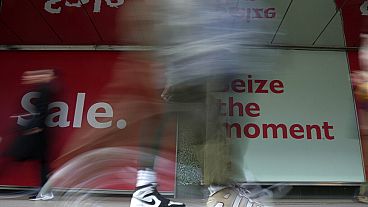By Peter Hobson
LONDON (Reuters) - London's gold market is much more liquid than government or corporate bonds, the London Bullion Market Association (LBMA) said on Thursday, presenting new figures which it said meant gold should not be subject to tough new liquidity rules.
The rules, due to go into force in the European Union in 2021, treat physically traded gold and other precious metals like any other commodity and require banks to hold more assets to match their exposure as a buffer against adverse price moves.
The LBMA has lobbied for precious metals to be exempt, arguing the regulation is unnecessary and would disrupt London's bullion clearing system, which settles gold transactions worth around $25 billion a day.
Reuters reported in January that the European Banking Authority (EBA) would review whether the rules, known as the net stable funding ratio (NSFR), are appropriate for precious metals.
To persuade the EBA of the need for an exemption, the LBMA calculated the liquidity of London's precious metals market and compared this with the EBA's ratings of assets including government and corporate bonds, which it considers highly liquid.
The LBMA said gold had an amihud illiquidity ratio -- a tool used to gauge liquidity -- of 0.000018, compared to the EBA's scores of 0.059 for government bonds and 0.188 for corporate bonds.
A reading closer to zero signifies greater liquidity.
Silver, platinum and palladium were also more liquid than bond markets with ratios between 0.0002 and 0.0017, the LBMA said.
"It makes a very compelling case for regulators to reconsider precious metals as a high quality liquid asset, and in particular gold," said LBMA Chief Executive Ruth Crowell.
To make the calculations, the LBMA used new data on trades which settle in London and Zurich, another precious metals trading centre closely connected to London.
The LBMA began publishing the data in November. Before then, there were no precise figures for the market, since transactions are made in over-the-counter trades between banks, brokers and dealers reluctant to reveal their activity.
Together London and Zurich make up the world's largest over-the-counter gold trading hub.
The deadline for the EBA to make a recommendation is April 2021, the same month the liquidity rules become active, meaning it may not be in time to prevent the rules from entering force with precious metals still included, the LBMA said.
The rules are part of Basel III regulations designed to make banks more stable. While Britain plans to leave the European Union this year, the EU's approach is likely to inform how Britain applies the Basel III requirements.
(Reporting by Peter Hobson; Editing by Veronica Brown and David Evans)



